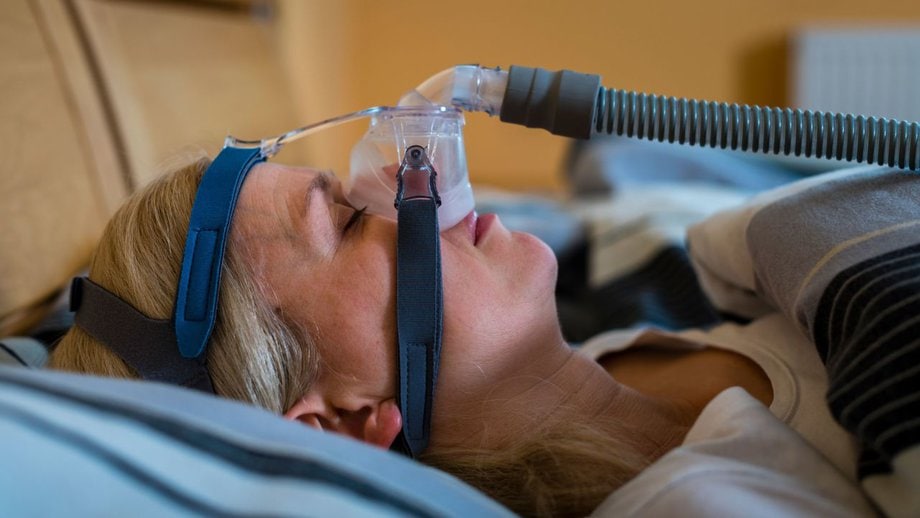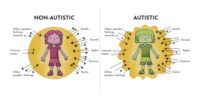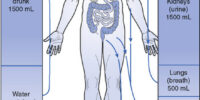Can Sleep Apnea Affect Your Emotional Well-Being?

Sleep apnea is a common sleep disorder characterized by interrupted breathing during sleep. While it is widely known that sleep apnea can lead to physical health problems such as cardiovascular disease and obesity, its impact on emotional well-being is often overlooked.
This article aims to explore the link between sleep apnea and emotional health, shedding light on how this sleep disorder can affect individuals on a deeper level. We will discuss the potential impact of sleep apnea on relationships and social well-being, as well as the available treatment options for managing this condition.
Furthermore, we will delve into the ways in which improving sleep quality can positively influence emotional well-being. By understanding the relationship between sleep apnea and emotional health, individuals can seek appropriate help and support, dispelling common myths and misconceptions surrounding this topic.
Finally, we will explore ongoing research and future directions in this field, emphasizing the importance of addressing the emotional impact of sleep apnea for overall well-being.
Key Takeaways
- Sleep apnea can have a significant impact on emotional well-being, including symptoms of depression, anxiety, and irritability.
- Untreated sleep apnea can lead to poor concentration, memory problems, and decreased quality of life.
- Sleep apnea can strain relationships and social well-being, making it difficult to engage in social activities and maintain an active social life.
- Seeking appropriate treatment and support, such as cognitive-behavioral therapy and joining support groups, can improve emotional well-being in individuals with sleep apnea.
Understanding Sleep Apnea
Sleep apnea is a common sleep disorder characterized by repetitive episodes of partial or complete obstruction of the upper airway during sleep. These obstructions can lead to a disruption in breathing and a decrease in oxygen levels, causing individuals with sleep apnea to wake up frequently throughout the night.
The most common type of sleep apnea is obstructive sleep apnea, which occurs when the muscles in the back of the throat fail to keep the airway open. This condition affects approximately 25 million adults in the United States alone.
Sleep apnea not only affects physical health but can also have a significant impact on emotional well-being. Research has shown that individuals with sleep apnea are more likely to experience symptoms of depression, anxiety, and irritability. Additionally, untreated sleep apnea can lead to poor concentration, memory problems, and a decreased quality of life.
The Link Between Sleep Apnea and Emotional Health
Impaired breathing during the night can significantly disrupt an individual’s psychological equilibrium, leaving them vulnerable to a range of emotional challenges.
Sleep apnea, a common sleep disorder characterized by pauses in breathing or shallow breaths during sleep, has been found to have a significant impact on emotional well-being. Research suggests that individuals with sleep apnea are more likely to experience symptoms of anxiety, depression, irritability, and mood swings compared to those without the disorder.
The exact mechanisms underlying this link are not fully understood, but it is believed that the intermittent oxygen deprivation and disruptions in sleep architecture associated with sleep apnea may contribute to changes in brain functioning and neurotransmitter imbalances, ultimately affecting emotional regulation.
Addressing sleep apnea through proper diagnosis and treatment may be crucial in improving emotional well-being and overall quality of life for affected individuals.
Impact on Relationships and Social Well-being
The presence of sleep apnea can have a profound impact on individuals’ ability to maintain healthy and fulfilling relationships, as well as their overall social well-being. People with sleep apnea often experience excessive daytime sleepiness, irritability, and mood swings, which can strain their relationships with family, friends, and colleagues. The constant fatigue and lack of energy caused by sleep apnea can make it difficult for individuals to engage in social activities and maintain active social lives. Additionally, the loud snoring and interruptions in breathing during sleep can disrupt the sleep of bed partners, leading to frustration and resentment. Furthermore, untreated sleep apnea has been linked to higher levels of depression and anxiety, further exacerbating the negative impact on emotional well-being.
| Impact of Sleep Apnea on Relationships and Social Well-being |
|---|
| Strained relationships with family, friends, and colleagues |
| Difficulty engaging in social activities |
| Disruption of bed partner’s sleep |
| Decreased quality of life and satisfaction in personal relationships |
Treatment Options for Sleep Apnea
One effective approach to addressing the condition involves utilizing a variety of treatment methods to alleviate the symptoms and improve the overall well-being of individuals with sleep apnea.
Treatment options for sleep apnea can vary depending on the severity of the condition and individual needs.
Continuous positive airway pressure (CPAP) therapy is considered the gold standard treatment for sleep apnea. It involves wearing a mask over the nose or mouth during sleep, which delivers a constant flow of air to keep the airway open.
Other treatment options include oral appliances, which are custom-made devices that help to reposition the jaw and tongue to keep the airway open, and surgery, which can be considered in certain cases.
Lifestyle changes such as weight loss, avoiding alcohol and sedatives, and sleeping on the side can also be beneficial in managing sleep apnea.
It is important for individuals with sleep apnea to consult with a healthcare professional to determine the most appropriate treatment plan for their specific needs.
Improving Emotional Well-being with Sleep Apnea
Improving emotional health while managing the symptoms of sleep apnea can be achieved through various strategies and interventions. It is important to address the emotional well-being of individuals with sleep apnea, as this condition can have a significant impact on their quality of life.
Here are some strategies that can help improve emotional well-being in individuals with sleep apnea:
- Cognitive-behavioral therapy (CBT): CBT can help individuals develop coping mechanisms to deal with the emotional distress caused by sleep apnea.
- Support groups: Joining support groups can provide individuals with a sense of belonging and understanding, as they can connect with others who are going through similar experiences.
- Stress reduction techniques: Engaging in activities such as meditation, deep breathing exercises, and yoga can help reduce stress levels and promote emotional well-being.
- Healthy lifestyle choices: Maintaining a balanced diet, regular exercise, and avoiding alcohol and tobacco can contribute to better emotional health.
By implementing these strategies, individuals with sleep apnea can work towards improving their emotional well-being and overall quality of life.
The Importance of Seeking Help and Support
Seeking help and support from professionals and connecting with others who understand the challenges of managing sleep apnea can significantly contribute to individuals’ overall well-being and ability to cope with their condition. Sleep apnea is a complex disorder that requires a multidisciplinary approach for effective management.
Seeking professional help from sleep specialists, such as sleep medicine physicians or pulmonologists, can ensure accurate diagnosis and appropriate treatment. These professionals can provide guidance on lifestyle modifications, such as weight loss and positional therapy, as well as recommend the use of continuous positive airway pressure (CPAP) devices or oral appliances.
Additionally, joining support groups or online communities specifically for sleep apnea can provide individuals with a sense of belonging and understanding. Interacting with others who share similar experiences can offer emotional support, practical advice, and strategies for coping with the challenges associated with sleep apnea.
By actively seeking help and support, individuals with sleep apnea can enhance their emotional well-being and improve their quality of life.
Common Myths and Misconceptions about Sleep Apnea and Emotional Health
Contrary to popular belief, there are several misconceptions surrounding the relationship between sleep apnea and mental health.
One common myth is that sleep apnea only affects physical health and does not have any impact on emotional well-being. However, research has shown that sleep apnea can indeed have negative effects on mental health.
Individuals with sleep apnea often experience excessive daytime sleepiness, irritability, and mood disturbances. The fragmented sleep patterns caused by sleep apnea can lead to a decreased quality of life and increased risk of developing mood disorders such as depression and anxiety.
Furthermore, untreated sleep apnea can exacerbate existing mental health conditions, making them more difficult to manage.
Therefore, it is important to recognize the connection between sleep apnea and emotional well-being and seek appropriate treatment and support.
Ongoing Research and Future Directions
Despite the prevalence and impact of sleep apnea on emotional well-being, there is still ongoing research aimed at further understanding this relationship and exploring potential interventions.
Researchers are investigating various aspects, such as:
- The specific mechanisms through which sleep apnea affects emotional health
- The role of comorbid conditions in exacerbating emotional symptoms
- The potential benefits of different treatment modalities in improving emotional well-being
Additionally, future directions in this field involve:
- The development of personalized treatments based on individual characteristics
- The incorporation of emerging technologies to monitor and manage emotional symptoms associated with sleep apnea
This research aims to enhance our understanding of the complex interplay between sleep apnea and emotional well-being, ultimately leading to more effective interventions and improved quality of life for individuals affected by this disorder.
Frequently Asked Questions
How does sleep apnea affect your overall quality of life?
Sleep apnea can significantly impact the overall quality of life. It can lead to daytime sleepiness, decreased cognitive function, mood disturbances, and decreased productivity, ultimately affecting one’s physical, mental, and social well-being.
Can sleep apnea lead to mental health disorders?
Sleep apnea has been linked to an increased risk of developing mental health disorders such as depression, anxiety, and cognitive impairment. The fragmented sleep patterns and decreased oxygen levels associated with sleep apnea may contribute to these negative psychological outcomes.
Are there any natural remedies or lifestyle changes that can help manage sleep apnea and improve emotional well-being?
Natural remedies and lifestyle changes can help manage sleep apnea and improve emotional well-being. These include weight loss, avoiding alcohol and sedatives, sleeping on your side, using a humidifier, practicing good sleep hygiene, and maintaining a regular sleep schedule.
Can emotional stress exacerbate sleep apnea symptoms?
Emotional stress can exacerbate sleep apnea symptoms. Studies have shown that stress can increase the severity and frequency of apnea episodes, leading to disrupted sleep and further impacting emotional well-being.
Is there a connection between sleep apnea and low self-esteem or self-confidence?
There is a possible connection between sleep apnea and low self-esteem or self-confidence. Several studies suggest that the negative impact of sleep apnea on daytime functioning and quality of life may contribute to these emotional issues.











